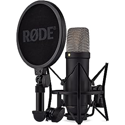Google DeepMind’s Lyria AI is like Canva for Music, Should Radio Worry?

Should radio stations worry about Lyria by Google DeepMind?
What is Google DeepMind project Lyria AI?
Is it intended only for TikTok, YouTube Shorts?
Does it work just how Canva does for graphics design?
How will musicians and artists benefit from this and how their intellectual property rights and copyright are protected?
What industries will be affected by this?
Which popular artists are participating in Google Lyria like Charlie Puth?
TikTok is already making an impact in music discovery, how will the Google Lyria AI further develop the industry of music recording?
What is the worth of the market of Artificial Intelligence in the music industry in US dollars?
Should radio stations worry about Lyria by Google DeepMind?
Google DeepMind, a research company that focuses on artificial intelligence, has recently unveiled its newest and “most advanced” music AI system yet, called Lyria. The company says the model can generate high-quality vocals, lyrics, and musical backing tracks that mimic the style of popular artists. DeepMind announced Lyria alongside new music creation experiments launching on YouTube Shorts¹².
Lyria is a product of Google DeepMind’s Music AI Incubator, a collaborative effort with industry experts to innovate music AI tools. Lyria uses a generative adversarial network (GAN) to create realistic and diverse musical content from a given input, such as a genre, a mood, a theme, or a few words. Lyria can also remix existing songs or generate new ones from scratch².
Lyria is not intended only for TikTok or YouTube Shorts, although these platforms are among the first to showcase its capabilities. Lyria is designed to be a versatile and accessible tool for anyone who wants to create or enjoy music, regardless of their musical background or skill level. Lyria aims to democratize music creation and consumption, as well as inspire new forms of musical expression and creativity².
Lyria works similarly to how Canva works for graphic design. Canva is a web-based platform that allows users to create and edit graphics, logos, posters, flyers, and other visual content using templates, icons, fonts, and images. Canva simplifies the design process and makes it easy for anyone to create professional-looking graphics without any prior experience or software³.
Lyria does the same for music. Lyria provides users with a simple and intuitive interface where they can choose from various options, such as genre, mood, theme, tempo, and instruments, to generate musical content. Lyria also offers templates, presets, and samples that users can customize or mix and match to create their own unique songs. Lyria allows users to preview, edit, and export their musical creations in various formats, such as MP3, WAV, or MIDI².
Musicians and artists can benefit from Lyria in many ways. Lyria can be used as a source of inspiration, a tool for experimentation, a partner for collaboration, or a teacher for learning. Lyria can help musicians and artists to:
– Generate new ideas and melodies for their songs
– Explore different genres and styles of music
– Remix or mashup existing songs or genres
– Collaborate with other musicians or artists across the world
– Learn from the feedback and suggestions of Lyria
– Enhance their musical skills and knowledge
However, Lyria also poses some challenges and risks for musicians and artists, especially in terms of their intellectual property rights and copyright. Lyria can potentially:
– Create songs that are similar or identical to existing songs
– Use samples or lyrics that are protected by copyright
– Generate songs that are offensive or inappropriate
– Claim ownership or credit for the songs it generates
– Compete with or replace human musicians and artists
Therefore, musicians and artists need to be aware of the legal and ethical implications of using Lyria, and follow the guidelines and terms of service of the platform. They also need to respect the originality and creativity of other musicians and artists, and acknowledge the sources and influences of their musical content.
Lyria will affect various industries related to music, such as:
– Music production and distribution: Lyria will enable faster and cheaper production and distribution of music, as well as more variety and diversity of musical content. Lyria will also challenge the traditional roles and functions of music producers, labels, publishers, and distributors, and create new opportunities and threats for them.
– Music education and training: Lyria will provide a new and innovative way of teaching and learning music, as well as a new and interactive way of engaging and motivating students. Lyria will also require new and updated curricula and methods of assessment and evaluation for music education and training.
– Music marketing and promotion: Lyria will create new and effective ways of marketing and promoting music, as well as new and loyal audiences and fans. Lyria will also require new and adaptive strategies and tactics of music marketing and promotion, as well as new and ethical standards and regulations for them.
– Music consumption and enjoyment: Lyria will offer new and personalized ways of consuming and enjoying music, as well as new and immersive experiences and emotions. Lyria will also influence the preferences and tastes of music consumers and listeners, as well as their expectations and satisfaction.
Some of the popular artists who are participating in Google Lyria are:
– Demi Lovato: The American singer and songwriter is one of the first artists to collaborate with Lyria, and has released a new song called “Lyria” on YouTube Shorts, where she sings along with the AI-generated vocals and lyrics of Lyria⁴.
– T-Pain: The American rapper and singer is another artist who has teamed up with Lyria, and has released a new song called “Lyria Remix” on YouTube Shorts, where he raps over the AI-generated backing track and vocals of Lyria⁴.
– Troye Sivan: The Australian singer and songwriter is also an artist who has worked with Lyria, and has released a new song called “Lyria Mashup” on YouTube Shorts, where he blends his own vocals and lyrics with the AI-generated ones of Lyria⁴.
TikTok is already making an impact in music discovery, as it is a popular platform for creating and sharing short videos, often featuring music and dance. TikTok has helped to boost the popularity and exposure of many songs and artists, as well as to create new trends and challenges in music. TikTok has also partnered with various music labels and publishers, as well as with streaming services and radio stations, to promote and distribute music⁵.
Lyria will further develop the industry of music recording, as it will provide a new and powerful tool for creating and editing music, as well as a new and attractive platform for showcasing and sharing music. Lyria will help to:
– Increase the quantity and quality of music recording, as it will enable anyone to record music easily and quickly, as well as to improve and enhance their musical content.
– Expand the diversity and creativity of music recording, as it will allow anyone to record music in any genre and style, as well as to experiment and innovate with their musical content.
– Enhance the interaction and collaboration of music recording, as it will enable anyone to record music with anyone else, as well as to receive and provide feedback and suggestions for their musical content.
The worth of the market of artificial intelligence in the music industry in US dollars is estimated to be around $229 million in 2022, and is expected to grow at a compound annual growth rate (CAGR) of 28.6%, reaching $2.6 billion by 2030⁶. The main factors driving the growth of the market are:
– The increasing demand and adoption of AI tools and solutions for music creation, production, distribution, education, marketing, and consumption.
– The rising popularity and availability of online platforms and services, such as YouTube Shorts, TikTok, Spotify, and Apple Music, that support and facilitate the use and integration of AI in music.
– The growing investment and innovation of AI research and development, especially in the fields of generative AI, natural language processing, computer vision, and machine learning, that enable the advancement and improvement of AI in music.
Sources:
(1) Google DeepMind Launches Lyria, Transforming the Future of Music with AI. https://analyticsindiamag.com/google-deepmind-launches-lyria-transforming-the-future-of-music-with-ai/.
(2) Google DeepMind unveils Lyria, a powerful GenAI model for music creation. https://venturebeat.com/ai/google-deepmind-unveils-lyria-a-powerful-genai-model-for-music-creation/.
(3) Google DeepMind’s AI Pop Star Clone Will Freak You Out. https://www.wired.com/story/google-deepminds-ai-pop-star-clone-will-freak-you-out/.
(4) Google DeepMind. https://deepmind.google/.
(5) Google DeepMind – Wikipedia. https://en.wikipedia.org/wiki/Google_DeepMind.
(6) Generative AI in Music Market to Reach Valuation of USD 2.6 – GlobeNewswire. https://www.globenewswire.com/en/news-release/2023/04/03/2639706/0/en/Generative-AI-in-Music-Market-to-Reach-Valuation-of-USD-2-6-Bn-at-CAGR-of-28-6-by-2032.html.
(7) AI In Media & Entertainment Market Size, Trends Report, 2030. https://www.grandviewresearch.com/industry-analysis/artificial-intelligence-ai-media-entertainment-market-report.
(8) AI-driven data could be the music industry’s best marketing instrument …. https://venturebeat.com/ai/ai-driven-data-could-be-the-music-industrys-best-marketing-instrument/.
(9) The Amazing Ways Artificial Intelligence Is Transforming The Music Industry. https://www.forbes.com/sites/bernardmarr/2019/07/05/the-amazing-ways-artificial-intelligence-is-transforming-the-music-industry/.
(10) The Sound of Change: How Data Analytics and AI are Transforming the …. https://www.intelligentautomation.network/transformation/articles/how-data-analytics-and-ai-are-transforming-the-music-industry.
(11) undefined. https://market.us/report/generative-ai-in-music-market/request-sample/.
(12) undefined. https://market.us/report/generative-ai-in-music-market/.









